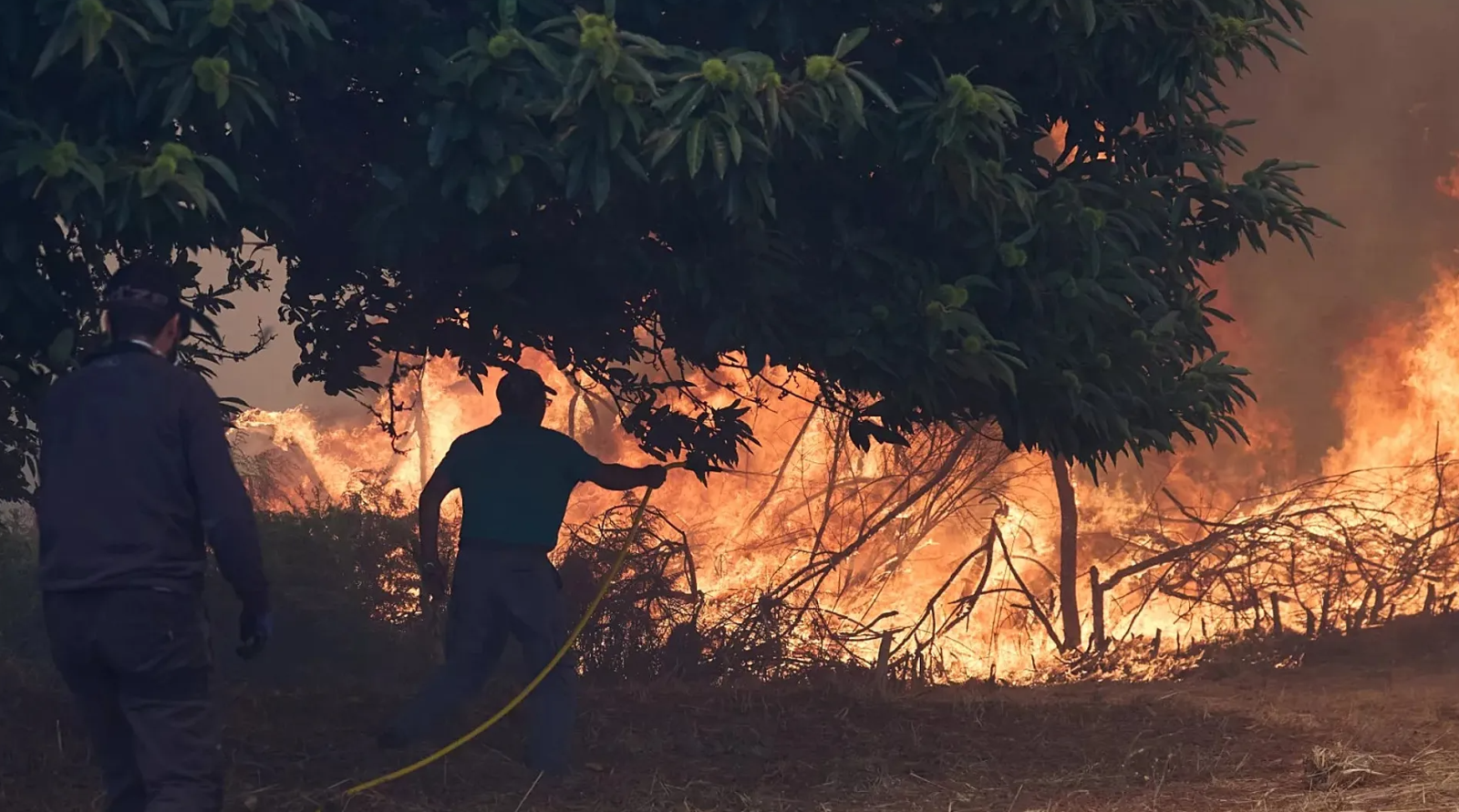
According to data compiled by Eurostat, more than one million hectares of land have burned across the EU since January 2025, with Spain and Portugal accounting for more than two-thirds of the destruction. The figure marks one of the largest areas scorched in modern records, as soaring summer temperatures and prolonged droughts drive more frequent and intense blazes.
Despite the escalating risk, the EU employed just 390,600 professional firefighters in 2024, a modest 8% increase on the previous year. Germany, France, Poland, Italy and Spain maintain the largest professional firefighting forces, each fielding between 42,000 and 61,000 staff. By contrast, smaller member states such as Cyprus, Denmark, Latvia, Lithuania and Finland operate with barely 1,400 to 3,400 professionals.
Even more concerning, unions say, is that some countries have reduced their firefighting numbers. Sweden cut its professional force by 23%, Belgium by 10%, and Portugal by 6%, despite facing increasingly severe fire seasons.
"It is scandalous that some countries continue to cut firefighter numbers just as wildfires grow in size, threatening people's lives and livelihoods," said Esther Lynch, general secretary of the European Trade Union Confederation (ETUC).
A patchwork of systems
The number of firefighters across Europe is difficult to compare directly, as national systems vary widely. Ireland, for example, relies almost entirely on professional staff, whereas Austria depends on around 200,000 volunteers supported by only a few thousand professionals.
The unions stress that recruitment is not the primary challenge. Instead, they argue that too few stable, adequately funded jobs are being created. Local and regional authorities, under pressure to cut costs, often impose severe restrictions on fire service budgets.
Between 2022 and 2023, EU governments did increase spending on fire-protection services by 8.5%, to €40.6 billion, but unions say this is still nowhere near the level required to cope with climate-fuelled disasters.
"As fires and flooding increase due to climate change, we cannot have standstill budgets," said Jan Willem Goudriaa, secretary general of the European Federation of Public Service Unions (EPSU). "We need substantial investment not only in firefighting capacity but also in forest maintenance, water management, civil protection, and above all prevention."
EU response falling short
In March 2025, the European Commission unveiled a preparedness strategy with 30 proposals to improve crisis anticipation, prevention and response. Several measures addressed wildfire risks specifically. However, unions argue the plan lacks the financial commitments to make a real difference on the ground.
In 2024, 20 EU member states recorded above-average areas burned by wildfires, underlining the urgency of stronger action. In a letter to EU crisis preparedness commissioner Hadja Lahbib, EPSU leaders accused governments of failing to prioritise staffing levels or prevention.
"The focus on civil protection has not been on strengthening personnel capacity," the letter stated. "We need more member states to build resilience and not just rely on market mechanisms to tackle wildfires."
Calls for a rethink
Unions are now demanding significant investment in professional firefighters, reforms to better integrate prevention into civil protection systems, and even a reallocation of part of the EU's defence funds towards crisis response.
With climate change making heatwaves and droughts more extreme across the continent, they warn Europe risks entering a cycle of record-breaking fire seasons without the resources to respond.
"The new reality is clear," said Goudriaa. "If Europe is to keep communities safe, firefighter numbers must rise — and prevention must finally be treated as seriously as response."